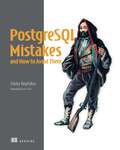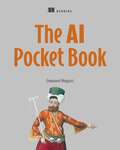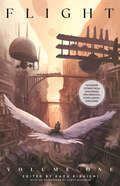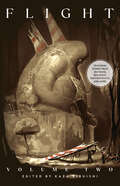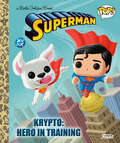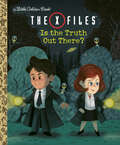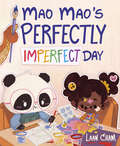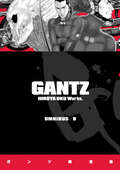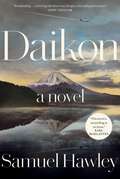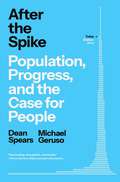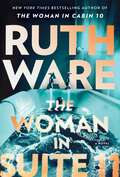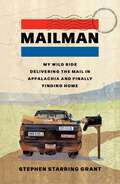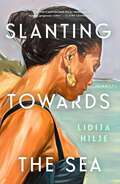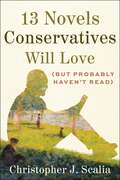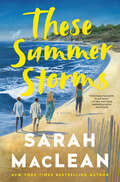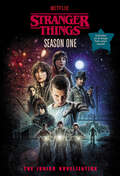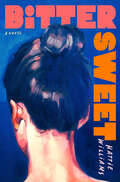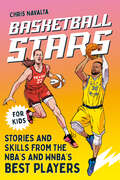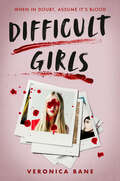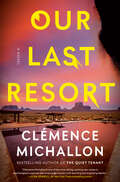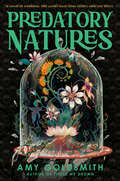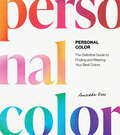- Table View
- List View
Hotel Ukraine: The Final Arkady Renko Novel (The Arkady Renko Novels)
by Martin Cruz SmithDetective Arkady Renko—&“one of the most compelling figures in modern fiction&” (USA TODAY)—returns in this tense thriller set amid the backdrop of Russia&’s invasion of Ukraine.In the latest installment of Martin Cruz Smith&’s celebrated Arkady Renko series, the legendary Moscow investigator seeks to solve the murder of a diplomat as Russia&’s invasion of Ukraine wears on and the effects of Renko&’s Parkinson&’s Disease worsen. Helped by his lover, journalist Tatiana Petrovna, Renko traces the murder to a Russian paramilitary group aided by a government official who also used to be a romantic partner of Renko. Before long, those responsible for the killing look to similarly dispatch Arkady and Tatiana—all of it leading to a thrilling and action-packed climax. Hotel Ukraine upholds Martin Cruz Smith&’s reputation as a master of modern detective fiction and Arkady Renko&’s standing as one of the genre&’s most complex protagonists.
PostgreSQL Mistakes and How to Avoid Them
by Jimmy AngelakosRecognize and avoid these common PostgreSQL mistakes!The best mistakes to learn from are ones made by other people! In PostgreSQL Mistakes and How To Avoid Them you&’ll explore dozens of common PostgreSQL errors so you can easily avoid them in your own projects, learning proactively why certain approaches fail and others succeed. In PostgreSQL Mistakes and How To Avoid Them you&’ll learn how to: • Avoid configuration and operation issues • Maximize PostgreSQL utility and performance • Fix bad SQL practices • Solve common security and administration issues • Ensure smooth migration and upgrades • Diagnose and fix a bad database As PostgreSQL continues its rise as a leading open source database, mastering its intricacies is crucial. PostgreSQL Mistakes and How To Avoid Them is full of tested best practices to ensure top performance, and future-proof your database systems for seamless change and growth. Each of the mistakes is carefully described and accompanied by a demo, along with an explanation that expands your knowledge of PostgreSQL internals and helps you to build a stronger mental model of how the database engine works. Foreword by Gianni Ciollil. About the technology Fixing mistakes in PostgreSQL databases can be time-consuming and risky—especially when you&’re making live changes to an in-use system. Fortunately, you can learn from the mistakes other Postgres pros have already made! This incredibly practical book lays out how to find and avoid the most common, dangerous, and sneaky errors you&’ll encounter using PostgreSQL. About the book PostgreSQL Mistakes and How To Avoid Them identifies Postgres problems in key areas like data types, features, security, and high availability. For each mistake you&’ll find a real-world narrative that illustrates the pattern and provides concrete recommendations for improvement. You&’ll especially appreciate the illustrative code snippets, schema samples, mind maps, and tables that show the pros and cons of different approaches. What's inside • Diagnose configuration and operation issues • Fix bad SQL code • Address security and administration issues • Ensure smooth migration and upgrades About the reader For PostgreSQL database administrators and application developers. About the author Jimmy Angelakos is a systems and database architect and PostgreSQL Contributor. He works as a Senior Principal Engineer at Deriv. Table of Contents 1 Why PostgreSQL matters—and why talking about mistakes does too 2 Bad SQL usage 3 Improper data type usage 4 Table and index mistakes 5 Improper feature usage 6 Performance bad practices 7 Administration bad practices 8 Security bad practices 9 High availability bad practices 10 Upgrade/migration bad practices 11 PostgreSQL, best practices, and you: Final insights A Frogge Emporium database B Cheat sheet
The AI Pocketbook
by Emmanuel MaggioriEverything you need to know about AI to survive—and thrive—as an engineer.If you&’re worried about your tech career going obsolete in a world of super-powered AI, never fear. The AI Pocket Book crams everything engineers need to know about AI into one short volume you can fit into your pocket. You&’ll build a better understanding of AI (and its limitations), learn how to use it more effectively, and future-proof your job against its advancement. In The AI Pocket Book you&’ll find no-nonsense advice on: • Deciphering AI jargon (there&’s lots of it!) • Where AI fits within your field of engineering • Why AI hallucinates—and what to do about it • What to do when AI comes for your job • The dark side of AI—copyright, snake oil, and replacing humans • Balancing skepticism with unrealistic expectations The AI Pocket Book gives you Emmanuel Maggiori&’s unvarnished and opinionated take on where AI can be useful, and where it still kind of sucks. Whatever your tech field, this short-and-sweet guide delivers the facts and techniques you&’ll need in the workplace of the present. About the technology You don&’t have to know everything about AI to get a big payoff! Whether you&’re looking to boost your coding speed, generate ideas for your next project, or just get a helping hand with your next Medium article, there&’s an AI-powered tool ready to assist. This fit-in-your pocket guide tells you everything you need to surf the AI wave instead of drowning in it. About the book The AI Pocket Book takes a peek inside the AI black box and gives you just enough on key topics like transformers, hallucinations, and the modern ecosystem of AI models and tools. You&’ll get handy techniques to select AI tools, learn when putting AI first is the smart move, and pick up some excellent tips for managing the inevitable, potentially expensive, screw ups. What's inside • Deciphering AI jargon (there&’s lots of it!) • Evaluating AI tools • Why AI hallucinates and what to do about it • How and when to use AI About the reader For engineers in all fields, from software to security. About the author Emmanuel Maggiori, PhD, is a software engineer and 10-year AI industry insider. He is also the author of Smart Until It&’s Dumb and Siliconned. Table of Contents 1 How AI works 2 Hallucinations 3 Selecting and evaluating AI tools 4 When to use (and not to use) AI 5 How AI will affect jobs and how to stay ahead 6 The fine print A Catalog of generative AI tools
Flight Volume One (Flight)
by Jake Parker Hope Larson Vera BrosgolLet your imagination take flight with the first volume of this groundbreaking graphic novel fantasy anthology series, featuring short stories from some of today&’s most legendary artists, including the series editor, Amulet creator Kazu Kibuishi! &“Most of the stories in this gorgeous color anthology are about flying, but the title also refers to its contributors starting to take wing. . . . As Scott McCloud notes in his afterword, they&’re the future of comics.&”—Publishers Weekly From the maiden voyage of a home-built plane to the adventures of a young courier and his flying whale, this first volume of Flight brought the titular theme and its many incarnations to life and collected the voices of brilliant illustrators and animators before they launched to fame. This comics anthology, featuring an afterword by Scott McCloud, is full of memorable and gorgeous tales from multiple New York Times bestselling authors, Eisner Award–winning creators, and Academy Award–nominated artists, including • Kazu Kibuishi, New York Times bestselling author of the Amulet series• Jen Wang, New York Times bestselling author of The Prince and the Dressmaker• Hope Larson, Eisner Award winner for her A Wrinkle in Time adaptation• Derek Kirk Kim, Eisner Award–winning creator of &“Urgent Request&”• Enrico Casarosa, Academy Award–nominated director of Luca• Clio Chiang, Academy Award–nominated artist on Raya and the Last Dragon• And more!
Flight Volume Two (Flight)
by Becky Cloonan Jen Wang Ben Hatke Don HertzfeldtLet your imagination take flight with the second volume of this groundbreaking graphic novel fantasy anthology series, featuring short stories from some of today's most legendary artists, including the series editor, Amulet creator Kazu Kibuishi!From the fantasy of a fading childhood romance in a small seaside town to the tale of a pair of monster hunters looking to make a quick buck, this second volume of Flight collected the voices of many brilliant illustrators and animators before they launched to fame.This reissued comics anthology is full of memorable and gorgeous tales from multiple New York Times bestselling authors and Academy Award-nominated artists, including:Kazu Kibuishi, New York Times bestselling author of the Amulet seriesJen Wang, New York Times bestselling author of The Prince and the DressmakerHope Larson, Eisner Award winner for A Wrinkle in Time adaptationBen Hatke, Eisner Award-winning creator of Little RobotVera Brosgol, Academy Award-nominated artist on Kubo and the Two StringsClio Chiang, Academy Award-nominated artist on Raya and the Last DragonAnd more!
Krypto: Hero in Training (Little Golden Book)
by Golden BooksDC Super Hero fans will adore this collectable Funko Pop! Little Golden Book featuring Superman™ and his dog Krypto!Superman is the greatest super hero of all time, but will the super-powered dog, Krypto, prove to be to too much for the Man of Steel? Or will Superman be able to turn the misbehaving pup into hero in its own right? Kids 2-5 years old will love this Little Golden Book featuring Superman, Krypto, and other DC Super Heroes.Funko Little Golden Books are illustrated in the adorable Funko Pop art style that is a fun way to introduce young readers to Superman and makes a great gift for DC Super Hero fans and Funko Pop! collectors of all ages.Little Golden Books enjoy nearly 100% consumer recognition. They feature beloved classics, hot licenses, and new original stories . . . the classics of tomorrow. We publish two to three Marvel Little Golden Books each year.
The X-Files: Is the Truth Out There? (Little Golden Book)
by Geof SmithThe truth is out there in this Little Golden Book for all ages featuring the characters, monsters, and aliens from the fan-favorite series The X-Files!Join Dana Scully and Fox Mulder as they investigate monsters, aliens, and mysterious conspiracies. Filled with iconic characters like the Fluke Man, Eugene Tooms, and Jose Chung, this not-too-scary storybook is perfect for fans of The X-Files of all ages as well as Little Golden Book collectors.The X-Files has thrilled viewers around the world since 1993.Little Golden Books enjoy nearly 100% consumer recognition. They feature beloved classics, hot licenses, and new original stories . . . the classics of tomorrow.
Mao Mao's Perfectly Imperfect Day
by Laan ChamA free-spirited new student helps a perfectionist panda embrace his more spontaneous side in this charming classroom story.Mao Mao strives for everything to be absolutely, 100%...PERFECT!But when Olivia joins his class, Mao Mao realizes that not everyone is this way. Olivia is messy. And noisy. And clumsy. So, Mao Mao decides to teach Olivia the art of how to be *PERFECT.* How hard could it be?With speech balloons and kawaii-influenced illustrations by Laan Cham, this relatable picture book celebrates individuality and self-expression and invites little ones to redefine what it means to be "perfect." It also champions embracing differences and learning from one another—an important lesson for any child starting school.
Gantz Omnibus Volume 9 (Gantz)
by Hiroya OkuA harrowing adult science-fiction epic of fierce imagination, Hiroya Oku&’s Gantz has sold over 15 million copies in Japan and inspired three feature films and an anime TV series. This value-priced collection features 640 pages of horror and heroism!It's good news/bad news for the alien-fighting Gantz warriors. The good news: Kei Kurono is back on the Tokyo team, resurrected after his second death. The bad? A massive unknown flying warship has appeared, laying waste to the planet&’s leading military superpower. Gantz teams from all over the world are gathered to fight back, only to be overwhelmed by an endless stream of terrifying foes. Is Armageddon now inevitable?Collects Gantz volumes 25, 26, and 27.For mature audiences
Only Between Us: A Novel (Oakwood Bay)
by Ellie K WildeThe highly anticipated sequel to the &“achingly tender and deliciously sexy&” (Jillian Meadows, author of Give Me Butterflies) Only in Your Dreams is a steamy, whip-smart sports romance about a former pro football star who agrees to fake date the fan-favorite ex of another high-profile NFL player so they can both save what&’s most dear to them while fighting their growing feelings for each other.After a death-defying injury sidelined him for two seasons, Brooks Attwood&’s pro football comeback has hit a major snag. Naughty photos from a post-break-up bender have leaked, and they&’re killing his chances with the Rebels—his old team, and the only one he wants to play on. As he trains with the hope of being signed before the first kickoff of the season, Brooks&’s plans to keep a low profile are suddenly upended when his selfie with a fiery fan goes viral, and tabloids mistake them as the football world&’s newest It couple. Turns out, Siena Pippen is the ex-girlfriend of the &“face&” of the League. And she wants nothing more to do with that world after being with her nightmare ex. While she and Brooks are busy blaming each other for the media circus surrounding them, NFL teams are suddenly scrambling to sign a housebroken Brooks. Meanwhile, Siena realizes that all this buzz could be the Hail Mary her family&’s struggling business needs. Together, Brooks and Siena hatch a plan: ignore the will to kill each other and pretend to be madly in love—at least, until Brooks signs with a team. But the longer they pretend, the less fake their fauxmance begins to feel...and Brooks becomes as determined to convince Siena they&’re truly meant to be as he is to land a spot on the Rebels&’ roster.
Daikon: A Novel
by Samuel Hawley&“Thrilling…Builds to a pulse-pounding climax. The result is the most imaginative take on Hiroshima since Edwin Corley&’s The Jesus Factor.&” —Publishers Weekly (starred review) &“A riveting tale about war, intrigue, love, and perseverance.&” —John Grisham • &“I could not look away. This novel is storytelling at its finest.&” —Karl Marlantes • &“Spellbinding…A breathtaking chain reaction that unleashes the true power of the novel.&” —Adam Johnson • &“Extraordinary…Daikon will sweep you away.&” —Jess Walter • &“Exhilarating…I loved this book, and you will love it too.&” —Arthur Golden A sweeping and suspenseful novel of love and war, set in Japan during the final days of World War II, with a shocking historical premise: three atomic bombs were actually delivered to the Pacific—not two—and when one of them falls into the hands of the Japanese, the fate of a couple that has been separated from one another becomes entangled with the fate of this terrifying new device.War has taken everything from physicist Keizo Kan. His young daughter was killed in the Great Tokyo Air Raid, and now his Japanese American wife, Noriko, has been imprisoned by the brutal Thought Police. An American bomber, downed over Japan on the first day of August 1945, offers the scientist a surprising chance at salvation. The Imperial Army dispatches him to examine an unusual device recovered from the plane&’s wreckage—a bomb containing uranium—and tells him that if he can unlock its mysteries, his wife will be released. Working in secrecy under crushing pressure, Kan begins to disassemble the bomb and study its components. One of his assistants falls ill after mishandling the uranium, but his alarming deterioration, and Kan&’s own symptoms, are ignored by the commanding officer demanding results. Desperate to stave off Japan&’s surrender to the Allies, the army will stop at nothing to harness the weapon&’s unimaginable power. They order Kan to prepare the bomb for manual detonation over a target—a suicide mission that will strike a devastating blow against the Americans. Kan is soon confronted with a series of agonizing decisions that will test his courage, his loyalty, and his very humanity. An extraordinary debut novel that is the result of twenty-seven years of work by its author, Daikon is a gripping and powerfully moving saga that calls to mind such classics as Cold Mountain and From Here to Eternity. It is set amid the chaos and despair of the world&’s third largest city lying in ruins, its population starving and its leadership under escalating assault from without and within. Here is a haunting epic of love, survival, and impossible choices that introduces a singular new voice on the literary landscape.
After the Spike: Population, Progress, and the Case for People
by Dean Spears Michael GerusoWhat if the challenge for humanity&’s future is not too many people on a crowded planet, but too few people to sustain the progress that the world needs? Most people on Earth today live in a country where birth rates already are too low to stabilize the population: fewer than two children for every two adults. In After the Spike, economists Dean Spears and Michael Geruso sound a wakeup call, explaining why global depopulation is coming, why it matters, and what to do now. It would be easy to think that fewer people would be better—better for the planet, better for the people who remain. This book invites us all to think again. Despite what we may have been told, depopulation is not the solution we urgently need for environmental challenges like climate change. Nor will it raise living standards by dividing what the world can offer across fewer of us. Spears and Geruso investigate what depopulation would mean for the climate, for living standards, for equity, for progress, for freedom, for humanity&’s general welfare. And what it would mean if, instead, people came together to share the work of caregiving and of building societies where parenting fits better with everything else that people aspire to. With new evidence and sharp insights, Spears and Geruso make a lively and compelling case for stabilizing the population—without sacrificing our dreams of a greener future or reverting to past gender inequities. They challenge us to see how depopulation threatens social equity and material progress, and how welcoming it denies the inherent value of every human life. More than an assembly of the most important facts, After the Spike asks what future we should want for our planet, for our children, and for one another.
The Woman in Suite 11: A Novel
by Ruth WareIn this follow-up to #1 New York Times bestselling author Ruth Ware&’s multi-million copy mega-hit The Woman in Cabin 10, Lo Blacklock returns to attend the opening of a luxury hotel, only to find herself in a white-knuckled race across Europe.When the invitation to attend the press opening of a luxury Swiss hotel—owned by reclusive billionaire Marcus Leidmann—arrives, it&’s like the answer to a prayer. Three years after the birth of her youngest child, Lo Blacklock is ready to reestablish her journalism career, but post-pandemic travel journalism is a very different landscape from the one she left ten years ago. The chateau on the shores of Lake Geneva is everything Lo&’s ever dreamed of, and she hopes she can snag an interview with Marcus. Unfortunately, he proves to be even more difficult to pin down than his reputation suggests. When Lo gets a late-night call asking her to come to Marcus&’s hotel room, she agrees despite her own misgivings. She&’s greeted, however, by a woman claiming to be Marcus&’s mistress, and in life-or-death jeopardy. What follows is a thrilling cat-and-mouse pursuit across Europe, forcing Lo to ask herself just how much she&’s willing to sacrifice to save this woman…and if she can even trust her?
Mailman: My Wild Ride Delivering the Mail in Appalachia and Finally Finding Home
by Stephen Starring GrantAn exuberant, hilarious, and profound memoir by a mailman in the Blue Ridge Mountains of Virginia, who found that working for the post office saved his life, taught him who he was, gave him purpose, and educated him deeply about a country he loves but had lost touch with.Steve Grant was laid off in March of 2020. He was fifty and had cancer, so he needed health insurance, fast. Which is how he found himself a rural letter carrier in Appalachia, back in his old hometown. Suddenly, he was the guy with the goods, delivering dog food and respirators and lube and heirloom tomato seeds and Lord of the Rings replica swords. He transported chicken feed to grandmothers living alone in the mountains and forded a creek with a refrigerator on his back. But while he carried the mail, he also carried a whole lot more than just the mail, including a family legacy of rage and the anxiety of having lost his identity along with his corporate job. And yet, slowly, surrounded by a ragtag but devoted band of letter carriers, working this different kind of job, Grant found himself becoming a different kind of person. He became a lifeline for lonely people, providing fleeting moments of human contact and the assurance that our government still cares. He embraced the thrill of tackling new challenges, the pride of contributing to something greater than himself, the joy of camaraderie, and the purpose found in working hard for his family and doing a small, good thing for his community. He even kindled a newfound faith. A brash and loving portrait of an all-American institution, Mailman offers a deeply felt portrait of both rural America and the dedicated (and eccentric) letter carriers who keep our lives running smoothly day to day. One hell of a raconteur, Steve Grant has written an irreverent, heartfelt, and often hilarious tribute to the simple heroism of daily service, the dignity and struggle of blue-collar work, the challenge and pleasure of coming home again after twenty-five years away, and the delight of going the extra mile for your neighbors, every day.
Slanting Towards the Sea: A Novel
by Lidija HiljeSpanning twenty years and one life-altering summer in Croatia, Slanting Towards the Sea is at once an unforgettable love story and a powerful exploration of what it means to come of age in a country younger than oneself.Ivona divorced the love of her life, Vlaho, a decade ago. They met as students at the turn of the millennium, when newly democratic Croatia was alive with hope and promise. But the challenges of living in a burgeoning country extinguished Ivona&’s dreams one after another—and a devastating secret forced her to set him free. Now Vlaho is remarried and a proud father of two, while Ivona&’s life has taken a downward turn. In her thirties, she has returned to her childhood home to care for her ailing father. Bewildered by life&’s disappointments, she finds solace in reconnecting with Vlaho and is welcomed into his family by his spirited wife, Marina. But when a new man enters Ivona&’s life, the carefully cultivated dynamic between the three is disrupted, forcing a reckoning for all involved. Set against the mesmerizing Croatian coastline, Slanting Towards the Sea is a cinematic, emotionally searing debut about the fragile nature of potential and the transcendence of love.
13 Novels Conservatives Will Love (but Probably Haven't Read)
by Christopher J. ScaliaA discussion of 13 works of literary fiction in the context of their relevance to conservative beliefs. Great novels are a remarkable confluence of complex characters, powerful storytelling, and beautiful language. They ask important questions and explore major ideas that can reflect a culture—and shape it. Yet if you talk to right-of-center readers about literary fiction that considers ideas of particular interest to conservatives, they tend to mention the same handful of books. They neglect greatness from across the centuries—hardly a conservative thing to do! Christopher J. Scalia&’s 13 Novels Conservatives Will Love (but Probably Haven&’t Read) helps anyone interested in conservatism both restock their fiction shelves and better understand a great intellectual tradition. A former English professor and a widely published critic and opinion writer, Scalia discusses outstanding works of fiction by anglophone writers from Samuel Johnson to Zora Neale Hurston, Nathaniel Hawthorne to P. D. James, Willa Cather to Walter Scott. These novels explore topics like national identity, tradition, religion, human nature, and many more—without descending into simplistic propaganda. Scalia connects the themes of great works spanning four centuries to the insights of such thinkers as Edmund Burke, William F. Buckley, Roger Scruton, Michael Oakeshott, Gertrude Himmelfarb, and Russell Kirk. Engaging, insightful, and funny, 13 Novels Conservatives Will Love (but Probably Haven&’t Read) introduces readers to great literature and teaches them about principles central to conservativism.
These Summer Storms: A Novel
by Sarah MacLeanFrom New York Times bestselling author Sarah MacLean, a razor-sharp, wildly sexy novel about a wealthy New England family&’s long-overdue reckoning . . . and the one week that threatens to tear them apart.&“Deliciously impossible to put down.&”—#1 New York Times bestselling author Jodi Picoult&“An addictive, engrossing story that combines generational drama, mystery, and sizzling romance.&”—#1 New York Times bestselling author Ali HazelwoodAlice Storm hasn&’t been welcome at her family&’s magnificent private island off the Rhode Island coast in five years—not since she was cast out and built her life beyond the Storm name, influence, and untold billions. But the shocking death of her larger-than-life father changes everything.Alice plans to keep her head down, pay her final respects (such as they are), and leave the minute the funeral is over. Unfortunately, her father had other plans. The eccentric, manipulative patriarch left his family a final challenge—an inheritance game designed to upend their world. The rules are clear: spend one week on the island, complete their assigned tasks, and receive the inheritance.But a whole week on Storm Island is no easy task for Alice. Every corner of the sprawling old house is bursting with chaos: Her older sister&’s secret love affair. Her brother&’s unyielding arrogance. Her younger sister&’s constant analysis of the vibes. Her mother&’s cold judgment. And all under the stern, watchful gaze of Jack Dean, her father&’s intriguing and too-handsome second-in-command. It will be a miracle if Alice manages to escape unscathed.A smart and tender story about the transformative power of grief, love, and family, this luscious novel explores past secrets, present truths, and futures forged in the wake of wild summer storms.
Stranger Things, Season One: The Junior Novelization
by Matthew J. GilbertThis expanded junior novelization retells the first season of Netflix&’s iconic series Stranger Things—and includes 8 pages of full-color images from the show!Hawkins is a quiet town where nothing exciting seems to happen—until one night when a boy named Will Byers vanishes. Follow his friends Mike, Lucas, and Dustin as they search for him and uncover a world of secret experiments and terrifying supernatural forces. Is Eleven, a girl with incredible psychic powers, the secret to the mystery? This 320-page junior novelization, which includes eight pages of full-color images from the show, retells the landmark first season of Stranger Things and is sure to thrill kids ages 7 to 10 as well as fans of all ages.Welcome to the thrilling world of Netflix's hit series Stranger Things. Follow Eleven, Dustin, Max, Lucas, and their friends for mystery, suspense, and supernatural adventures in 1980s Hawkins.
Bitter Sweet: A Novel
by Hattie WilliamsA young book publicist finds herself in an all-consuming workplace affair with her literary idol in this &“very impressive debut&” (Chris Whitaker, New York Times bestselling author of All the Colors of the Dark).&“Beautifully crafted, with aftershocks of conscience that will leave you processing for hours with others who&’ve read it.&”—Jodi Picoult, #1 New York Times bestselling author of By Any Other NameSometimes the things you love most are the very things that can tear you apart.Charlie is twenty-three, single and the new publicity assistant at London&’s preeminent independent book publishing house. Richard Aveling is fifty-six, married and the author who has defined his generation.Charlie has long idolized the charming, illustrious writer, who also represents a link to her late mother who loved his work. But as they embark on an illicit and all-consuming affair, Charlie is forced to hide the relationship from everyone she cares about.Too soon, she can&’t imagine her life without Richard, and too late, she understands that losing him will unravel more than just their relationship—it might also unravel her.Tender and poignant, Bitter Sweet is an intimate exploration of power, of vulnerability, of what it means to love another person and what it means to love yourself.
Basketball Stars: Stories and Skills from the NBA's and WNBA's Best Players (Sports Stars)
by Chris NavaltaA collection of stories about great basketball players to inspire young fans, with famous skills they&’ll want to try out on the courtIs your child obsessed with basketball? Do they talk nonstop about their favorite players and unforgettable games? Basketball Stars: Stories and Skills from the NBA's and WNBA's Best Players is the perfect gift for young players and fans of the sport—a treasure trove of some of the greatest and most inspiring stories in the history of professional basketball, tailored for young readers.Authored by a sportswriter/basketball superfan, this book will teach readers about each player&’s signature skills and how they practiced them to win. Readers will learn about Steph Curry&’s rise to becoming a global basketball icon and his supreme ball-handling skills; Caitlin Clark&’s success story and the art of the step-back; LeBron James&’s path to legendary status, including his iconic moves; and many more inspiring stories and techniques from other top players. Basketball Stars features:10 captivating stories about legends and soon-to-be legends of basketball. Go beyond just the stats to discover the secrets that propelled each player to greatness and the inspiring life lessons they learned along the way.Signature skills from every featured player to try on the court, with step-by-step instructions to practice and improve your game.Engaging illustrations that show each player in action, with dynamic visuals for each signature skill.Ideal for basketball fans ages 8–12, this book will inspire both basketball fans and new readers excited to learn more about the game of basketball.
You Wanna Be on Top?: A Memoir of Makeovers, Manipulation, and Not Becoming America's Next Top Model
by Sarah HartshorneIn this revealing memoir, a fan favorite America&’s Next Top Model contestant pulls back the curtain on the iconic but deeply flawed reality competition show, exposing the manipulation and chaos behind the scenes."A delicious, hilariously relatable behind-the-scenes memoir. A page-turning lark turns into an internal (rather than external) makeover." —Maria Bamford, New York Times bestselling author of Sure, I'll Join Your CultTyra Banks&’s America&’s Next Top Model was a cultural phenomenon with more than six million weekly viewers at its peak. Over its fifteen-year run, the show captured the glitz of the early aughts as well as its most toxic attitudes—from the glamorous but often questionable photo shoots to the cutting feedback from its highly respected if out-of-touch judges. But as its fans have grown up and as the next generation discovers ANTM, they&’ve also begun to reckon with the enduring ways that the show has affected their body image and self-esteem.Sarah Hartshorne would have never guessed that her first foray into modeling would start with being blindfolded alongside three dozen other girls on a charter bus winding through Puerto Rico. In You Wanna Be On Top?, Cycle 9&’s only plus-size contestant takes us into the heart of the unforgiving auditions; the labyrinthian cruise ship the girls weren&’t allowed to enjoy; and, of course, the L.A. &“model house&” teeming with hidden cameras and elaborately constructed tensions. As the season unfolds and the producers&’ interview questions about her weight and her opinions of the other girls become increasingly pointed, Hartshorne uncovers the destabilizing methods employed to film &“reality.&”Drawing on her experience as well as interviews with other contestants and production crew, Hartshorne answers the questions you always wanted to ask: Why didn&’t the house have a microwave or a dishwasher? Why did girls regularly faint during eliminations? Which judge was the meanest off camera? Why is it that the girls had their most meaningful conversations in closets? (Answer: It was the one place camera crews couldn&’t fit.)With tender honesty and sharp wit, Hartshorne dissects the iconic show with an unflinching gaze that refuses to smize.
Difficult Girls
by Veronica BaneA teen girl&’s attempt at social reinvention takes a deadly turn when a co-worker disappears—and she learns she may have been the last person to see the missing girl—in this razor-sharp, murderously funny thriller debut.After the incident last year, Greta Riley Green is looking for reinvention—a fresh start—and a job at Hyper Kid Magic Land, the local amusement park, seems like the perfect way to forge a new path . . . no matter what it takes.So when fate pulls Greta into Mercy Goodwin&’s orbit, it feels like things are looking up. Beautiful and confident, Mercy dazzles audiences daily. And at the first party of the summer, she picks Greta to confide in. Mercy has a secret to share, if Greta will just meet her the next day. It&’s a sign that Greta&’s truly fitting in.Only, when the time comes, Mercy is a no-show—as she is everyday after that—and Greta knows something&’s wrong. She can&’t help thinking back to the night of the party. Did Mercy seem upset? Terrified, even? Could she be in trouble? It wouldn&’t be the first time a talented young performer came to a sinister end at Hyper Kid. . . .Of course, Greta has her own issues with the past, and the more she uncovers Hyper Kid&’s secrets, the more her own threaten to surface. This job was meant to be a reboot, a summer without trouble. But trouble, it seems, finds Greta, and her past—and the bloody past of Hyper Kid—is about to catch up with her.
Our Last Resort: A Novel
by Clémence MichallonFrom the bestselling author of The Quiet Tenant comes an immersive new suspense novel: Fifteen years ago, Frida and her brother escaped a cult. Now her brother is the prime suspect in a murder investigation—and it isn&’t the first time.A MOST ANTICIPATED BOOK OF THE SUMMER: The New York Times, USA Today, Oprah Daily, Boston Globe, Marie Claire, CrimeReads, Apple Books, Goodreads, Brit + Co, She Reads, BuzzFeed, BookBub, Tag24&“Clémence Michallon is one of the most daring, exciting new voices in psychological suspense; she writes page turners with stunning and surprising depths.&” – #1 New York Times bestselling author Lisa Jewell"Thought-provoking and shocking. A perfect summer read.&”—Mary Kubica, New York Times bestselling author of She's Not SorryInnocence doesn't bail you out; it just makes you easier to trap.Frida and Gabriel arrive seeking a fresh start at the stunning Ara Hotel in the secluded desert of Escalante, Utah. Once so close they were able to finish each other&’s sentences, they&’ve grown apart in recent years after a sudden, unspeakable tragedy. Now, at the luxe resort, they are ready to reconnect between dips in the pool and hikes on spectacular desert trails. It all feels like paradise—until the dead body of a beautiful young woman who was vacationing at the Ara with her powerful, much older husband is discovered.When the local police arrive and suspicion quickly falls on Gabriel, Frida is forced to revisit memories from their upbringing in a cloistered cult in upstate New York, their dramatic escape, and the scandal that followed. Frida&’s belief in Gabriel&’s innocence never wavered at the time, but now even she can&’t ignore the evidence mounting against him.Alternating between past and present timelines, Our Last Resort builds toward a shattering climax that uncovers the fate of the murdered Ara guest and poses the question: how well do we ever really know those we love? Multi-layered, gripping, and intense, Clémence Michallon&’s latest suspense novel is a nail-biter until the last page, cementing her status as a major new talent in the genre.
Predatory Natures
by Amy GoldsmithA teen girl's dream job aboard a luxury train derails when she discovers the strange cargo being transported—a mysterious and beautiful greenhouse—but its flowering façade may hide deadly thorns beneath, in this atmospheric and lush novel from the author of Those We Drown.When Lara Williams gets a summer job aboard the luxury train the Banebury, she thinks she&’s landed a five-star escape from her past. Even after she learns that her ex-friend Rhys, who she definitely did not have feelings for before their relationship imploded, is one of her coworkers, she&’s determined to make things work.But on the first day of their journey, the trip takes a strange turn. Two mysterious carriages filled with an array of beautiful and rare plants are attached to the Banebury in the middle of the night.And with them comes a pair of siblings. Wealthy, mysterious, and charismatic, Gwen and Gwydion claim the plants they&’re transporting are for research, but Lara can&’t shake the feeling that there&’s something . . . otherworldly about the strange blooms. Something that will stop at nothing to ensure the Banebury never reaches its destination.Soon Lara will learn: You can&’t outrun your troubles. You have to grab them by their roots. And if she can&’t unearth the secrets of the Banebury, they might drag her down for good. . . .
Personal Color: The Definitive Guide to Finding and Wearing Your Best Colors
by Anuschka ReesThe definitive modern guide to finding your season and best colors, from the author of The Curated Closet.Why do some colors look radiant and effortless on one person but completely wash out another? The answer is color theory. In Personal Color, you&’ll harness the power of color theory to identify your color season and discover which shades best harmonize with your unique skin tone, hair, and eye color to make your natural beauty shine. In Personal Color you will learn how to:Accurately predict whether any color will suit you (or not)Find your color season (spring, summer, autumn, or winter) and subtype (clear, true, light, soft, or deep)Broaden your &“color horizon&” to go beyond neutrals and shades that are considered on-trend or safeAccurately assess photos and color descriptions when shopping onlineWear colors you love that are not in your seasonal palettePick the makeup and hair colors that work best for youFeaturing step-by-step instructions to identify your personal color palette, hundreds of color swatches, and example photos of models of all races, genders, and ages representing the color seasons, Personal Color is a timeless resource full of exercises, charts, cheat sheets, and glossaries that you&’ll find yourself reaching for again and again.

